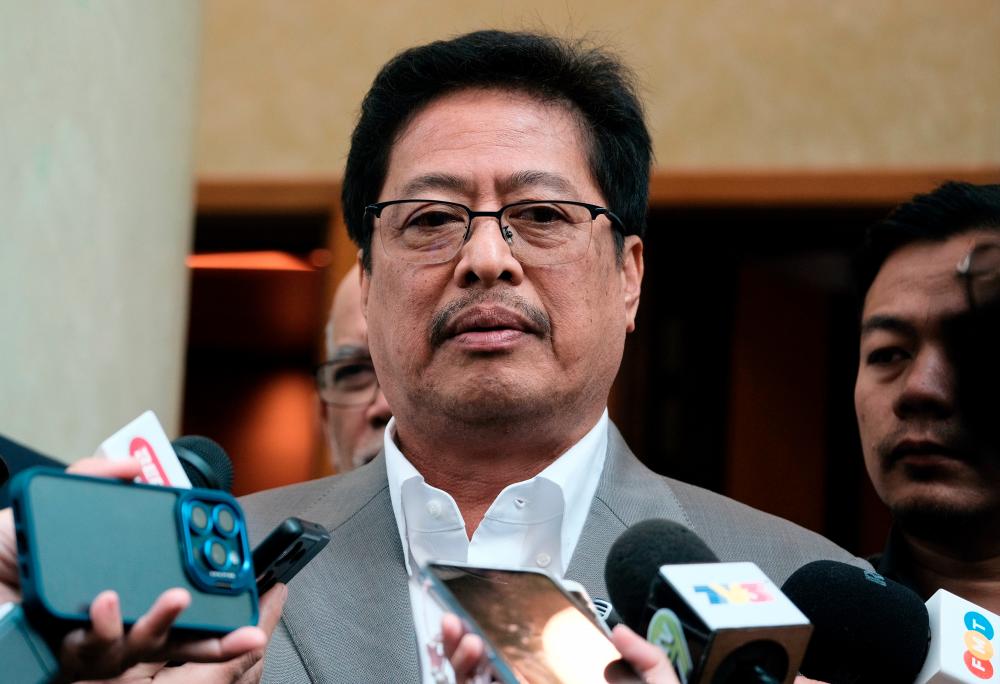PUTRAJAYA: The Malaysian Anti-Corruption Commission’s (MACC) investigative and intelligence approach needs to be enhanced in an effort to track down assets stolen by corrupt criminals, said MACC Chief Commissioner Tan Sri Azam Baki.
He said MACC operations are now more focused on not only arresting corrupt offenders and prosecuting them in court, but also bankrupting them.
‘For this year alone we repatriated RM1.3 billion in criminal assets and that money (we) was handed back to the government. If all law enforcement agencies mobilize their energy, in addition to arresting criminals, accusing them in court, we can also confiscate stolen property of such criminals.
‘I want to make them bankrupt (corrupt criminals) and this can bring a ‘scare factor’ to them so that they think many times before committing crimes related to corruption,‘ he told Bernama in a recent interview.
Azam said the legal provisions under the Anti-Money Laundering, Anti-Terrorism Financing and Proceeds of Unlawful Activities Act 2001 allows the MACC to confiscate assets from the criminals and return the stolen proceeds to the government.
He said such efforts require a high level of knowledge and expertise from investigative and forensic officers.
“Imagine corrupt criminals park their property with a ‘proxy’, who knows. Therefore, our investigation and intelligence approach must be robust and empowered. Before investigating that person we need to identify assets that have been disposed of or if channeled to any party so that we can ensure these assets are (returned),” he said.
Drawing the example of the 1Malaysia Development Bhd (1MDB) case, Azam said MACC’s hard work together with other agencies bore fruit when RM29 billion was returned to the government from the principal cost of RM42 billion.
The MACC has also set up task force in other agencies like Bank Negara, the Royal Malaysian Customs Department, and the Royal Malaysian Police (PDRM) to share expertise in syndicate cases.
In addition to enforcement, MACC also plays a role in prevention and community education through mainstream media and campaigns on social media.
“The use of social media is optimized in line with the needs of the community, for example ‘live streaming’ debate programmes that allow the community to watch and understand,” said Azam.
He also said that community education is delivered from the primary level to the universities, for example through the Anti-Corruption Student Group which was started at Sultan Zainal Abidin University (UniSZA).
“Now, we focus on the flow to help the country in economic development. Therefore, we focus on important areas to help make cost savings in efforts to prevent corruption,” he said.
More focused approach on giving and receiving of bribes, corruption in procurement that causes large leakages, and large-scale corruption or ‘grand corruption’ is needed.
Asked about foreign countries that can be used as an example, Azam said that apart from Hong Kong, the MACC also learned from other countries, including Qatar, which uses a fully digital system for traffic compound payments, reducing the probabilities of corruption.
He also suggested that the government’s service system be improved since digitalised systems can prevent people from standing in long queues, like procedures that require fingerprints to change ownership.
“The MACC was established in 1967, so we are already 57 years old. Many countries want to learn from MACC, although some deny MACC’s role in the international arena. For example, the delegation of Uzbekistan that has just established an anti-corruption agency in 2020 came to deal with the MACC,” he said.
He added that related agencies need to find ways to facilitate people’s affairs as part of the people’s service reform agenda, which will provide a better delivery system and avoid opportunities for corruption.









